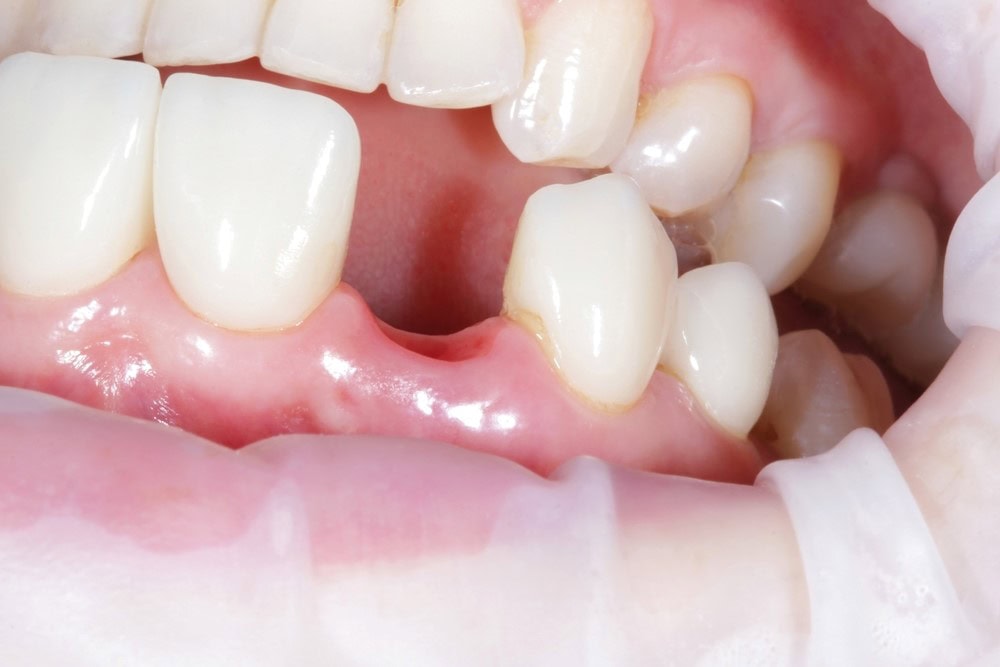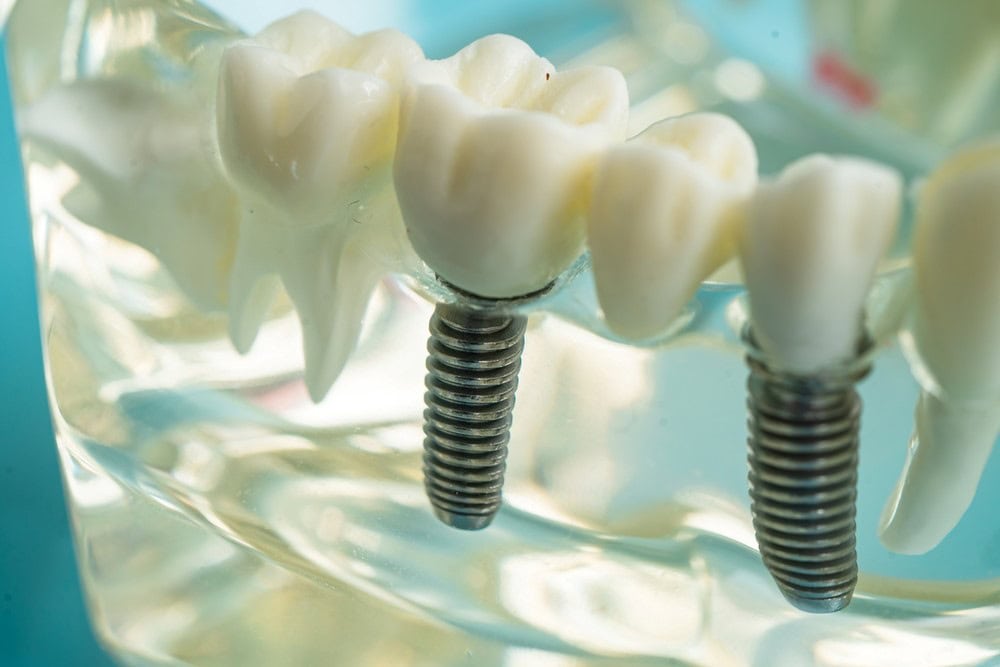
Everyone wants to maintain a perfect, dazzling smile throughout their lives. The condition of your teeth can affect your physical and mental health. Physically, missing teeth can affect your digestion and ability to chew certain foods effectively. Mentally, teeth that are falling out can be a stigma that causes sufferers to lose self-esteem and may affect their ability to succeed in an image-conscious society.
Teeth falling out in healthy adults is often an indicator that oral hygiene has been neglected. A visit to our dental clinic in Chiang Mai is recommended when these symptoms occur. These symptoms include:
- Bad breath
- Bleeding gums
- Loose teeth
- Swollen gums
- Toothache
Our dentist will give you some tips on improving your oral hygiene routine and help provide a remedy for your symptoms that will help save your teeth.
Reasons for Tooth Loss in Adults
There are three main reasons why teeth fall out in otherwise healthy adults in the prime of their lives despite practicing good oral hygiene. They include:
Gum Disease
A buildup of dental plaque is often a catalyst for gum disease, also known as periodontal disease. This plaque contains harmful bacteria that can infect your gums and jawbone, and poor oral hygiene is a mitigating factor. Genetics also influences gum disease, as some people have inadequate immune system responses. Seeing a dentist at the first sign of sore and inflamed gums can help you save your teeth.
Trauma to the Tooth
Trauma to the tooth or surrounding gums and tissue due to accidents and injuries can also cause teeth to fall out. Seeking out dental care as early as possible following a traumatic injury provides you with the best chance of making a full recovery. Wearing a mouth guard when playing contact sports also helps avoid mouth injuries.
Teeth Grinding (Bruxism)
Teeth grinding or bruxism is the act of grinding or clenching your teeth. It’s typically done unintentionally and is often done while you sleep. There is no definitive answer as to the cause, although oral health specialists usually attribute it to stress, anger, and anxiety. Most cases of nocturnal bruxism are treated by wearing a mouth guard while you sleep to protect the teeth from the forces of clenching and unclenching.
Risk Factors of Tooth Loss
There are also some risk factors to watch out for in your personal life and habits that could increase your chances of losing teeth. Besides poor oral hygiene, they include:
- Dry mouth – saliva helps protect teeth from harmful bacteria
- Hormonal changes, including menopause, can reduce saliva production
- Some medications can cause dry mouth or directly affect the health of bones and tooth enamel
- Using tobacco and vaping contributes to gum disease
- Diabetes can increase the chances of gum disease
- A family history of gum disease is a warning sign
My Teeth Are Falling Out. What Should I Do?
Your first step should always be to remedy the situation to help prevent further deterioration. Once you’ve improved your oral health habits, there are three modern tooth loss options to consider:
Dental Implants

Dental implants are the most popular option for replacing missing teeth. They generally take several months to complete and require two or three visits to your dentist. The first step is to place the titanium implant into your jawbone. After the bone has healed around the implant, a crown is attached to the top of the implant to form a permanent tooth that looks and feels like your natural tooth. Dental implants can last for decades if you follow everyday dental hygiene practices.
Dental Bridges
Dental bridges consist of artificial teeth that bridge the gap where your missing tooth used to be. A dentist uses the teeth on either side of the gap as anchors that support the bridge. The teeth are filed down, and crowns are placed over them, connected to the artificial tooth (or teeth) spanning the bridge. There are several types of bridges, and your dentist can recommend the right type for you. Dental bridges typically last five to fifteen years, or longer.
Dentures
Dentures are custom-made, removable appliances that replace missing teeth. Many types of dentures are made from nylon, resin, acrylic, metal, and porcelain. Partial dentures replace one or a few teeth, while full dentures replace an entire row of upper or lower teeth. Dentures are removed for cleaning and to allow the gums to rest. Dentures can last from five to ten years.
Visit GrandDent Dental Clinic to Remedy Tooth Loss
As a Chiang Mai dental clinic, we emphasize excellent customer service through our expertise in premium dental implants, full-mouth reconstruction, and rehabilitation. Make an appointment at GrandDent Dental Clinic today and consult a dentist to learn more about impending tooth loss and replacement options.
References
- Tooth Loss – Retrieved on July 17, 2025, from
https://my.clevelandclinic.org/health/diseases/tooth-loss - Periodontal Disease (Gum Disease) – Retrieved on July 17, 2025, from
https://my.clevelandclinic.org/health/diseases/21482-gum-periodontal-disease - Bruxism – Retrieved on July 17, 2025, from
https://www.hopkinsmedicine.org/health/conditions-and-diseases/bruxism
Located near Chiang Mai International Airport, offers comprehensive dental care with over 38 years of expertise. Founded by Assoc. Prof. Thongnard Kumchai, a leading oral surgeon and former Dean of Bangkok Thonburi University, the clinic is supported by Dr. Hattapol Kumchai, an American-board certified prosthodontist, and a team of over 14 skilled dentists, including professors from top Thai dental institutes.
With a focus on personalized treatment, advanced technology, and a bilingual staff, GrandDent ensures a professional and welcoming experience, delivering long-term oral health and natural-looking results.
